By Saad Khan
On the 5th of May 2009, the great researcher (muhaqqiq) and hadith scholar of our age Shaykh Sarfaraz Khan Safdar (may Allah shower His infinite mercy upon him) passed away at the age of 98. Mawlana Sarfaraz Khan ibn Nur Ahmad Khan ibn Gul Ahmad Khan was born in 1914 in the city of Mansehra, in Khyber Pakhtunkhwa (previously known as the North West Frontier Province) of what is now Pakistan. He was a renowned researcher and scholar, a prolific writer, a lecturer in hadith and tafsir, and a master of Tasawwuf. [1]Taken from the Pearls of the Elders blog.
He completed his early studies in his hometown under Mawlana Ghulam Ghaws Hazarwi [2]An early student of Imam Sayyid Anwar Shah Kashmiri and Shaykh al-Islam ‘Allamah Shabbir Ahmad ‘Usmani, he was jailed many times by the British Raj for his anti-colonial activities. and then traveled to Sialkot and Multan for further studies. There, he studied under Shaykh Ishaq Rahmani, a student of Mufti Muhammad Kifayatullah Dahlawi, and Mawlana Ghulam Muhammad Ludhianwi, an early student of Imam Anwar Shah Kashmiri. After completing elementary studies there he enrolled at Jami’ah Anwar al-‘Ulum, Gujranwala, where he studied under ‘Allamah ‘Abd al-Qadir Khan Kambelpuri, also an early student of Imam al-‘Asr Mawlana Sayyid Anwar Shah Kashmiri.
He later traveled to Deoband in 1939 along with his younger brother, Mawlana Sufi ‘Abd al-Hamid Khan Sawati, and enrolled at Dar al-‘Ulum Deoband where he studied hadith under Shaykh al-Islam Mawlana Husayn Ahmad Madani. It was Shaykh al-Islam who gave him the title “safdar“. He himself mentions that once he was late to lesson for some reason. “I was piercing the lines of students to get to the front [of the class] where I used to sit. When my teacher Shaykh al-‘Arab wa ‘l-‘Ajam Mawlana Husayn Ahmad Madani saw me coming like that, he said, ‘Saf-dar is coming.’ All of the students started to smile. He then said, ‘He is that safdar who, by the will of Allah, will distinguish between truth and falsehood.” [3] See article, Shaykh Sarfaraz Khan Ki Juda’i, by Mawlana Shafi Chatrali from Daily Islam.
‘Allamah Sarfaraz Khan himself mentioned that during his stay at Deoband, students of hadith would hold speech competitions. After delivering a few speeches, it became famous that he was a great lecturer. Once ‘Allamah Muhammad Anwar Sabri, a famous poet, heard him delivering a speech and said: “Where in the North West Frontier Province was this Abu al-Kalam Azad born?”
Other scholars whom he studied under at Deoband included Shaykh al-Adab wa ‘l-Fiqh Mawlana I’zaz ‘Ali, the master of logic and dogma (kalam) ‘Allamah Ibrahim Balyawi, Mufti Muhammad Shafi’ ‘Usmani, Mawlana ‘Abd al-Haqq Nafi’ Gul, Mawlana Mufti Zain al-Din, Mawlana ‘Abd al-Shakur Farangi Mahalli and Mawlana Abu al-Wafa Shah Jahanpuri. His guide in tasawwuf was Ra’is al-Mufassirin Mawlana Husayn ‘Ali Wanbacharan [4]Mawlana Husayn ‘Ali al-Punjani (d. 1363H) was also known for his mastery in tafsir of the Qur’an. He studied hadith and fiqh under Imam Rashid Ahmad Gangohi, tafsir under Shaykh … Continue reading, a khalifah of the Naqshbandi Mujaddidi Sufi master Khawaja Muhammad ‘Uthman Damani and a student of Imam Rabbani Mawlana Rashid Ahmad Gangohi. Among his contemporaries at Deoband were Khawaja-i-Khwajgan Mawlana Khan Muhammad, Mufti Rashid Ahmad Ludhianwi and Mawlana Muhammad Yusuf Palandri.
Shaykh Sarfaraz moved to Gujranwala, a town in the Punjab province of Pakistan, at the request of Chaudhry Fakhr al-Din and Master Karam Din, and started to teach there. In 1955, he became a lecturer and teacher at Jami’ah Nusrat al-‘Ulum, a madrasah founded by his brother. He went on to teach at Nusrat al-‘Ulum for many years where he held the position of shaykh al-hadith.
The mawlana was unjustly imprisoned in the early 1950s for his support of the Khatam al-Nubuwwah movement [5]While in jail, ‘Allamah Sarfaraz would give lessons of Hujjat Allah al-Baligah, Sharh al-‘Aqa’id, and Nukhbat al-Fikr.. This is when his writing career started. He was one of the most knowledgeable scholars of hadith in the Indian subcontinent and a specialist in polemics. His mastery of hadith and his ability to reference from memory was such that some would claim he was a hafiz al-hadith. [6] Last two lines taken from the at-Talib blog.
During the height of the Khatam al-Nubuwwah movement, Shaykh Sarfaraz was leading a march when a police officer suddenly drew a red line on the road and proclaimed that anyone who crossed the line would be shot. The shaykh stopped those present in the march and said, “Bare witness that I have passed the sunnah age of sixty-three, and I feel it my honor to spill my last drop blood for the finality of the prophethood. If I don’t cross this line today, then what will be my answer tomorrow to my Shaykh Madani?” Shaykh Sarfaraz was then the first to cross the line. [7] See article Rahmat-i-Khudawandi Teri Lahd pay Shabnam Afaye Karay by Mawlana Muhammad Yusuf in Weekly Al-Qalam, Bahawalpur – Issue 8-14 May, 2009
Because of his well-researched writings he quickly became known among scholars as muhaqqiq al-‘asr (researcher of the age) and imam Ahl al-Sunnah (the imam of the Ahl al-Sunnah). This title was given to him by the likes of Mufti Ahmad al-Rahman, Mufti Wali Hassan Tonki, Shaykh Yusuf Ludhianwi Shahid, Mufti Nizam al-Din Shamza’i Shahid, Mufti Muhammad Jamil Khan Shahid, Mufti Zar Wali Khan, Mufti Muhammad Naeem, Mawlana Muhammad Aslam Shaykhupuri, etc. with the consensus of scholars at imam Ahl al-Sunnah conference in 1992 in Karachi. He was correctly given the title of imam Ahl al-Sunnah but would say out of humbleness, “Yes, I am imam Ahl al-Sunnah in the sense that I am an imam of Jam’i masjid Ahl al-Sunnah in Gujranwala.”
About a month before his death on 2nd April, 2009, Mufti Muhammad Rafi’ ‘Usmani attended a conference at Al-Shari’ah Academy, Gujranwala, at the invitation of Shaykh Zahid al-Rashidi, Shaykh Sarfaraz’s eldest son. Mufti Rafi’ ‘Usmani started his speech, after praising Allah, with these words: “…Mawlana Zahid al-Rashidi is our much respected and noble elder. I have great attachment to Mawlana Sarfaraz Khan Safdar from my student days. When we were in the final year of hadith studies (dawrah al-hadith), our teachers would tell us about the research (tahqiq) of Mawlana Sarfaraz Khan Safdar…” [8]Monthly Al-Shari’ah, Gujranwala – May edition.
His books were highly popular among scholars as well as laymen. ‘Allamah Mufti Taqi ‘Usmani, in his preface to Shaykh Sarfaraz’s Al-Kalam al-Mufid fi Ithbat al-Taqlid, wrote: “Mawlana Sarfaraz Khan Safdar is, with respect to his knowledge and nobility, and his spirit of research, a national treasure. We pray that Allah Most High preserves him for long in this state of beneficence. The services to the din he has rendered through his pen, his works in affirmation of the true path and his knowledge-based criticisms of various modern schools of thought are a great asset to our educational and religious literature.
“The mawlana’s style [of writing] is such that whenever he mentions something, there is a huge collection of supportive references behind it, and every page of his book is decorated with those references. Every single piece of writing by your honorable self is a great resource of knowledge for students such as me. For this reason, this most worthless one has, with great interest, collected all of your works and from time to time I make use of them during lectures…” (Al-Kalam al-Mufid, p.346-347)
His study (mutali’ah) was only next to that of ‘Allamah Muhammad Yusuf Binnori, as he had more resources available. Mawlana Mufti Faqir Allah, a khalifah of Shaykh al-Hind Mawlana Mahmud al-Hassan, said: “… I am not sure that you posses all of the books that you have quoted from … seems like you are writing from the library of Pir Jhanda or the library of Dar al-‘Ulum Deoband. Do you really have all these books? What more should I say…” (Ahsan al-Kalam, p.22-23)
Shaykh Sarfaraz penned the highest amount of books among Deobandi scholars after Hakim al-Ummah Mawlana Ashraf ‘Ali Thanawi and Mufti Muhammad Shafi’. [9]As reported by Mufti Zar Wali Khan of Ahsan al-‘Ulum, Karachi. At times, the likes of Mufti Shafi’, ‘Allamah Binnori and Mufti Mahmud would ask him to write a book on a certain topic.
The likes of Shaykh al-Islam Mawlana Husayn Ahmad Madani, Shaykh ‘Abd al-Fattah Abu Ghuddah, Shaykh al-Hadith Mawlana ‘Abd al-Haqq Haqqani [10]He is the student of Shaykh al-Islam Mawlana Husayn Ahmad Madani and founder of Dar al- ‘Ulum Haqqaniyyah, Akorah Khatak. Mawlana Qari Tayyab Qasmi labeled this institute to be Dar … Continue reading, Mawlana Qari Muhammad Tayyab Qasmi, Amir-i-Shari’ah Sayyid ‘Ata’ullah Shah Bukhari, Hafiz al-Hadith Mawlana ‘Abdullah Darkhawasti, Shaykh al-Tafsir Mawlana Ahmad ‘Ali Lahori, Muhaddith al-Jalil Mawlana Habib al-Rahman A’zami, ‘Allamah Khayr Muhammad Jalandhari, ‘Allamah Shams al-Haq Afghani, Mufti Sayyid Mahdi Hassan, Shaykh al-Hadith Mawlana Muhammad Nasir al-Din Gorgushti, Shaykh al-Hadith Mawlana Muhammad ‘Abd al-Rahman Kambelpuri, etc. have highly praised his writings.
According to one estimate, the shaykh’s tafsir students across the world number over forty thousand. [11] See Editorial Weekly Al-Qalam, Bahawalpur – Issue 8-14 May, 2009
His books include:
- Khaza’in al-Sunan — a two-volume commentary on Sunan al-Tirmidhi;
- Ahsan al-Kalam Mas’ala Fatiha Khalf al-Imam — a detailed two-volume treatise on reciting Surah al-Fatihah behind the imam in congregation. Shaykh Sarfaraz also dwells on what Imam al-Bukhari and Imam al-Bayhaqi have written on this topic. Shaykh al-Islam Mawlana Husayn Ahmad Madani has, among many other, penned a short preface to this book;
- Taskin al-Sudur fi Tahqiq Ahwal al-Mawtah fi Barzakh wa ‘l-Qubur — a detailed discussion on the lives of the prophets in their graves, death, the soul, punishment in the grave, the hearing of the dead, tawassul, istimdad, etc. This book was written at the request of ‘Allamah Yusuf Binnori and Mawlana Mufti Mahmud. It also consists of introductions by almost all senior Deobandi scholars who were alive at the time of its publication. According to Mufti Zar Wali Khan, this book is the most thorough ever written on the topic, and more detailed than what ‘Allamah al-Suyuti and Imam al-Qurtubi have written;
- Al-Kalam al-Mufid fi Ithbat al-Taqlid — a detailed book on taqlid, which also answers objections against the Hanafi madhhab;
- Izalat al-Rayb ‘an ‘Aqidah ‘Ilm al-Ghayb — a detailed book on the knowledge of the unseen (‘ilm al-ghayb) in light of the Qur’an, the Sunnah and the Salaf. This book was written originally in 1959 and consists of 536 pages and it is a mine of quotes and explanations from classical books of Hadith and ‘Aqida; and it contains extensive replies to the Ahl al-Bid’ah on this issue. This book although in Urdu contains all the documentary proofs in Arabic also – it is very thorough and advisable for all who wish to know this issue in full depth;
- Rah-i-Sunnat — an incredible book on the definition of bid’ah and various bid’ahs;
- Tabrid al-Nawadir — a detailed study of the issue of hadhir nadhir; it also contains a refutation of the belief that the prophets and saints have the ability to hear everyone from anywhere;
- Ayina Muhammadi — a small booklet on the character of the Prophet Muhammad (may Allah bless him and grant him peace);
- Ahsan al-Bari — an explanation of some difficult hadiths in Sahih al-Bukhari;
- Ta’ifah Mansurah — a study of the characteristics of the saved group according to Qur’an and Sunnah;
- Irshad al-Shi‘ah — an analysis of the Shi’ah sect;
- Durud Sharif Parhanay ka Shar‘i Tariqah — the correct way to recite Salat wa Salam according to Shari’ah;
- Ibarat-i-Akabir — answers to allegations against the senior ‘ulama of Deoband made by Ahl al-Bid’ah;
- Tabligh-i-Islam — a short discussion of the basic beliefs of Muslims;
- Guldastah-i-Tawhid — an examination of tawhid and shirk;
- Dil ka Surur — a treatise on the issue of mukhtar-i-kull, tasarruf, takwin and whether Allah has given the Prophet (may Allah bless him and grant him peace) the ability to make halal and haram;
- Hidayat al-Murtab Ila Tariq al-Sawab fi Tahqiq al-Mu’jizat — a study on the view of Ahl al-Sunnah on miracles, its definition and whether humans have any say in the performance of miracles;
- Bani Dar al-‘Ulum Deoband — a short biography of Mawlana Muhammad Qasim Nanautwi;
- Yanabih — a book on Tarawih prayers;
- Dhu ‘l-Siraj fi Tahqiq al-Mi’raj — answers to those who deny Isra wa ‘l-M’iraj;
- Mas’alah Qurbani — fiqh rulings regarding sacrificing animals;
- ‘Isaiyat ka Pas-i-Manzar — a small booklet on Christianity;
- Maqalah Khatam-i-Nubuwwah — a treatise on the finality of the Prophethood;
- Maslak al-Mansur fi Radd al-Kitab al-Mastur — a discussion on the connection of the soul with the body in the grave, and the lives of the prophets in graves;
- Itmam al-Burhan fi Radd Tawdih al-Bayan — a four volume book discussing different issues relating to ‘aqidah and fiqh;
- Hulyat al-Muslimin — a discussion on the beard;
- Tawdih al-Maram fil Nuzul al-Masih — a detailed study of the second coming of Sayyiduna ‘Isa (peace be upon him);
- Shawq-i-Hadith — the status of hadiths in Islam;
- Mulla ‘Ali Qari awr Mas’alah ‘Ilm al-ghayb — a interesting treatise discussing a statement of Mulla ‘Ali al-Qari regarding knowledge of the unseen and whether the soul of beloved Prophet is present in the homes of Muslims;
- Tanqid Matin bar Tafsir Na’im al-Din — written at the request of Mufti Muhammad Shafi’, this book discusses some of the distortions of Molwi Na’im al-Din Muradabadi, khalifah of Molwi Ahmad Rada Khan Barelwi, as mentioned in his tafsir;
- Bab-i-Jannah — a discussion on bid’ah and other fiqh issues;
- Al-Kalam al-Havi fi Tahqiq ‘Ibarah al-Tahawi — issue of giving Zakah to the descendants of the Prophet (may Allah bless him and grant him peace);
- Mawdudi Sahib ka Aik Ghalat Fatwa — criticism of a fatwa issued by Mawlana Abu al-‘Ala Mawdudi;
- Mas’alah Nur wa Bashar — a discussion on whether the prophets are humans or light, whether the Prophet (Allah bless him and grant him peace) had a shadow, and what the first thing was that Allah created;
- Tafrih al-Khawatir — a discussion on whether the Prophet (may Allah bless him and grant him peace) is omnipresent;
- Chahl Mas’alah Hadrat Barelwiyyah — a collection of 40 ‘aqidah and fiqh issues relating to the Barelwis; originally compiled by Al-Hajj Muhammad Karim Bakhsh and republished by ‘Allamah Sarfaraz with brief annotations;
- Umdat al-Asas — a detailed book on the issue of three divorces (talaq). This book was also mentioned by Mufti Muhammad Shafi’ in Ma’arif al-Qur’an;
- Al-Shihab al-Mubin — a discussion on whether the dead can hear;
- Izhar al-‘Ayb fi Kitab Ithbat ‘Ilm al-Ghayb — a treatise on the knowledge of the unseen;
- Sama-i-Mawta — a study on whether the dead can hear near the grave;
- Chalis Du’ain — a book of forty invocations;
- Maqam-i-Abi Hanifah — answers to allegations against Imam Abu Hanifah. Mufti Muhammad Shafi’ once said he decided to write a book on Imam Abu Hanifah and that he had begun to gather material for it. “But when I came across this book, I knew that this book is enough”;
- Sirf Aik Islam — this book was written in response to the book Dow Islam (Two Islams) by the famous rejector of hadiths Dr. Ghulam Jailani Barq. Shaykh Sarfaraz penned this book in refutation while in Multan Jail. Dr. Barq, who later repented, said over a dozen books were written in response to his book, but only this one was worthy of being called a refutation. This book was also highly praised by Mawlana Qari Muhammad Tayyab Qasmi;
- Hukm Zikr bi ‘l-Jahr — a discussion on the issue of loud and soft dhikr;
- Shawq-i-Jihad — the virtues of jihad;
- Atib al-Kalam — a short version of Al-Kalam al-Mufid;
- Inkar-i-Hadith kay Nata’ij — a study detailing the consequences of denying hadiths;
- Mirzai ka Janazah awr Musalman — a fatwa on offering the janazah of Qadiyanis;
- Ikhfa’ al-Zikr — the fiqh of loud and soft dhikr.
His lectures have recently been published in three volumes and entitled Khutbat Imam Ahl al-Sunnah. His two exegeses (tafsirs) of the Qur’an, comprising 8 and 20 volumes, are in the process of being published. May Allah shower His infinite mercy upon him and grant him the highest stations in Paradise. Amin.
| ↑1 | Taken from the Pearls of the Elders blog. |
|---|---|
| ↑2 | An early student of Imam Sayyid Anwar Shah Kashmiri and Shaykh al-Islam ‘Allamah Shabbir Ahmad ‘Usmani, he was jailed many times by the British Raj for his anti-colonial activities. |
| ↑3 | See article, Shaykh Sarfaraz Khan Ki Juda’i, by Mawlana Shafi Chatrali from Daily Islam. |
| ↑4 | Mawlana Husayn ‘Ali al-Punjani (d. 1363H) was also known for his mastery in tafsir of the Qur’an. He studied hadith and fiqh under Imam Rashid Ahmad Gangohi, tafsir under Shaykh Mawlana Mazhar Nanautwi, and theology and logic under Mawlana Ahmad Hassan Kanpuri. After the death of his shaykh, Khawaja Muhammad ‘Uthman Damani, he continued his suluk under Khawaja Muhammad Siraj al-Din, son of Khawaja Muhammad ‘Uthman Damani. His famous students include the likes of Hafiz al-Hadith Mawlana ‘Abdullah Darkhawasti, ‘Allamah Muhammad Nasir al-Din Gorgushti, ‘Allamah Ahmad Rida Bijnori, Shaykh al-Qur’an Mawlana Ghulamullah Khan, Shaykh al-Qur’an Mawlana Tahir Panjpiri, Mawlana Muhammad ‘Abdullah Bahlawi, Mawlana Muhammad Nasir al-Din Gorgushti, Khawaja Muhammad Ibrahim Naqshbandi, and Pir Ghulam Habib Naqshbandi, etc. Imam Sayyid Anwar Shah al-Kashmiri considered him the greatest living Naqshbandi shaykh of his age. (Tuhfat al-Ibrahimiyyah, p.11) Mawlana ‘Ubaydullah Anwar mentions that his father, Shaykh al-Tafsir Mawlana Ahmad ‘Ali Lahori, would have annual conferences in Lahore in which he would invite scholars from all over the subcontinent. Mawlana Ahmad ‘Ali Lahori would say: “I invite all other scholars for the benefit of the general public but I invite two for the benefit of the ‘ulama. These two are Imam Sayyid Anwar Shah Kashmiri and Mawlana Husayn ‘Ali.” Mawlana Ahmad ‘Ali Lahori also used to say that Mawlana Husayn ‘Ali was immersed in tawhid (fana fi ‘l-tawhid) and that he proved the tawhid of Allah even by the vowels of the Qur’an. Shaykh Abu ‘l-Hassan ‘Ali Nadwi writes regarding Shaykh Husayn ‘Ali, “He employed his best efforts to call the people towards tawhid [and to] pure religion and sincerity of worship for Allah Most High, and to reject shirk with all its forms and phenomena, and to renounce grave worship and appointing of lords other than Allah and exaggeration about the awliya’ and the pious and the labeling of the attributes and actions of Allah to [the awliya’], and to refute istighathah with other than Allah and isti’anah from [other than Allah] and the belief that the Holy Prophet (Allah bless him and give him peace) knew the ghayb (unseen). Mawlana Husayn ‘Ali was inflicted severe pains in this cause and underwent difficulties and troubles. He was strong hearted and unshakable. He was not partial or a compromiser. He didn’t not play with words or use metaphors. Rather he spoke out the open truth and the right Shar’i matter while not fearing condemnation of a condemner in the matter of Allah. He followed in the footsteps of Shaykh Shah Isma’il Shahid al-Dahlawi and the companions of Sayyid Imam Ahmad bin ‘Irfan al-Shahid, and ‘Allamah Rashid Ahmad bin Hidayat Ahmad al-Gangohi. He had a special way of commentating the Qur’an evolving around the belief of tawhid in the Qur’an. He used to annotate, explain and apply the verse and texts of the Qur’an to the life, customs and actions of Muslims. A team of ‘ulama studied under him and innumerable people benefited from him. There are stories of kashf and karamat attributed to him. He was very abstinent and austere, lived like farmers, wore clothes like them and did all his work himself. He was of a whitish color tending to whiteness, slim bodied, strong structured and calm. Among his works are Bulghat al-Hayran fi Rabt Ayat al-Furqan, Tafsir be Nazir, Tahrirat Hadith, Talkhis al-Tahawi and Tuhfat al-Ibrahimiyyah.” (Nuzhat al-Khawatir, p.1217) At the death of Mawlana Husayn ‘Ali, Mawlana Husayn Ahmad Madani in condolence presented the following resolution during the conference of Jam’iat ’Ulama al-Hind, held in Saharanpur in 1945 in the presence of hundreds of senior scholars, “This gathering of Jam’iat ’Ulama al-Hind expresses its heartfelt pain and sorrow over the death of Shaykh Mawlana Husayn ‘Ali Mianwali and considers his death a great loss for the Muslim Ummah. He was a bare sword of tawhid and a mountain against the polytheistic customs and innovations. He did not fear any repercussions and expressed the truth fearlessly.” (Summary of the Conference, p.13, Delhi) |
| ↑5 | While in jail, ‘Allamah Sarfaraz would give lessons of Hujjat Allah al-Baligah, Sharh al-‘Aqa’id, and Nukhbat al-Fikr. |
| ↑6 | Last two lines taken from the at-Talib blog. |
| ↑7 | See article Rahmat-i-Khudawandi Teri Lahd pay Shabnam Afaye Karay by Mawlana Muhammad Yusuf in Weekly Al-Qalam, Bahawalpur – Issue 8-14 May, 2009 |
| ↑8 | Monthly Al-Shari’ah, Gujranwala – May edition. |
| ↑9 | As reported by Mufti Zar Wali Khan of Ahsan al-‘Ulum, Karachi. |
| ↑10 | He is the student of Shaykh al-Islam Mawlana Husayn Ahmad Madani and founder of Dar al- ‘Ulum Haqqaniyyah, Akorah Khatak. Mawlana Qari Tayyab Qasmi labeled this institute to be Dar al-‘Ulum Deoband of Pakistan. |
| ↑11 | See Editorial Weekly Al-Qalam, Bahawalpur – Issue 8-14 May, 2009 |


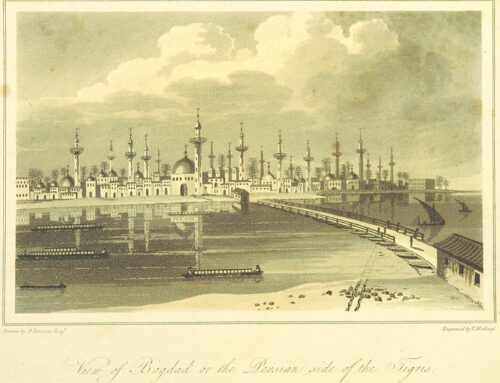
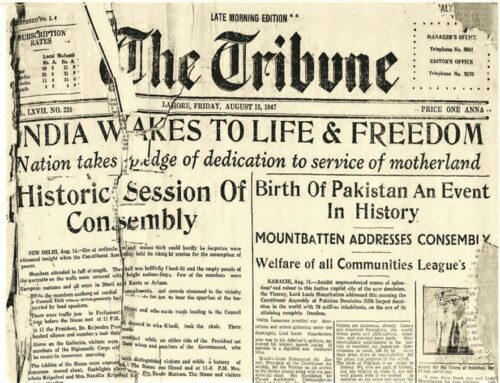
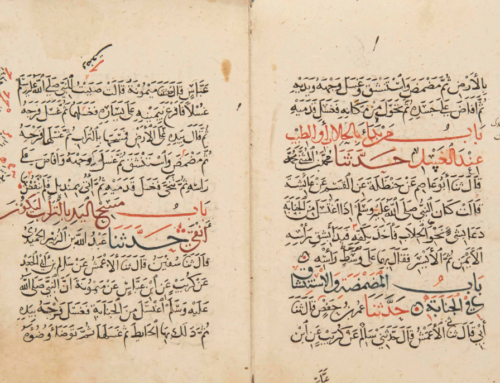
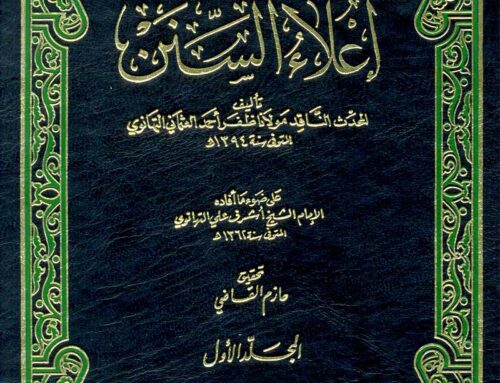
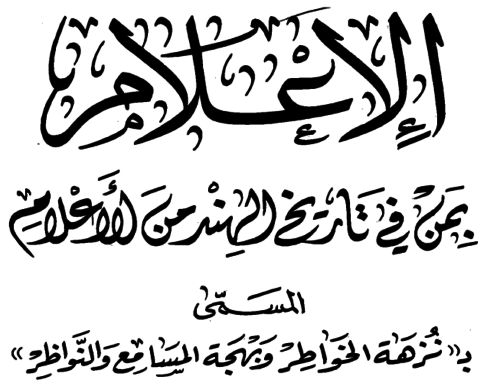
Assalamu alaykum wa rahmatullahi wa barakatuhu,
What does Safdar mean?
Jazak Allah Taala khair.
Assalam o ‘alaykum,
عربی زبان سے مشتق اسم ‘صف’ کے ساتھ فارسی مصدر ‘دریدن’ سے فعل امر ‘در’ بطور لاحقہ فاعلی ملنے سے مرکب بنا۔ اردو میں بطور صفت نیز بطور اسم استعمال ہوتا ہے اور سب سے پہلے 1518ء کو “لطفی بہمنی” میں تحریراً مستعمل ملتا ہے۔
صفت ذاتی
1. (دشمن کے) لشکر کی صفوں کو چیر کر ان میں گھس جانے والا، نہایت بہادر، سورما۔
تم ہو سر لشکر، سپاہی برق پیما، سخت کوش
تم کو صفدر سورما، ساونت، سرکش، سرفروش ( 1933ء، سیف و سبو، 34 )
اسم معرفہ ( مذکر – واحد )
1. حضرت علی کا لقب۔
ہے میر پریشان دل و آوارہ و مضطر
کیا تری صفت کر سکے یا حیدرِ صفدر ( 1810ء، میر، کلیات، 1394 )
Basically, it means piercing lines, fighter, brave soldier, etc. Safdar was also one of title/honory names of Sayyiduna ‘Ali (may Allah be pleased with him).
Allah jaza atta farmaey. It is a very very beautiful attribute to my Shaykh rehmatullah alaih. May his soul resr in peace with his aqa e do jahan, Khatim ul anbya Muhammad urrasool ullha salla Allah alaih e wa salam.
jazakum Allah.
Another prominent student of Mawlana Husayn Ali (rahmatullahi alayhi) was Hazrat Pir Ghulam Habib Sahib (rahmatullahi alayhi). Pir Sahib began studying tafseer by him at the Khanqah of Khwaja Siraajuddeen (rahmatullahi alayhi). Unfortunately, Mawlana Husayn Ali passed away before Pir Sahib could complete his studies of tafseer so he completed it with Shaykhul Quran Mawlana Ahmad Ali Lahori (rahmatullahi alayhi).
Assalam o ‘alaykum,
Can you tell us more about Mawlana Pir Ghulam Habib (may Allah have mercy on him)?
Shaykh al-Qur’an Mawlana Tahir Panjpiri (may Allah have mercy on him) was also one of the prominent student of Mawlana Hussain ‘Ali Wanbacharan.
Assalaamu alaikum
Can someone translate tthis article for Mawlana written by Shaykh Mohammed Akram Nadwi?
http://sarfrazsafdar.org/nuqoosharbi_alallama_akramnadvi.htm
Asalam o Alikum
Please update the complete shajrah of hazrat Sarfraz Khan Safdar(rahimullah).
Assalam o ‘alaykum,
Here is the complete shajrah as well as name of some khulafa‘.
http://www.sarfrazsafdar.org/sawanih/sawanih_silsilah_naqshbandia.htm
1- All his sons (1. Shaykh al-Hadith Mawlana Zahid al-Rashidi, 2. Mawlana ‘Abd al-Quddus Khan Qarin, 3. Mawlana ‘Abd al-Haq Bashir, 4. Mawlana Rashid al-Haq ‘Abid, 5. Mawlana Hammad Zahrawi, 6. Mawlana ‘Aziz al-Rahman Shahid, 7. Qari Inayat al-Wahhab Saji, 8. Qari Minhaj ul-Haq Rashid).
9. Dr. ‘Abd al-Razzaq Sikandar.
10. Mufti Sa’id Ahmad Jalalpuri Shahid.
11. Mawlana Qari Jamil al-Rahman Akhtar.
12. Mufti Jamil Khan Shahid.
13- Mawlana Qari Sa’id al-Rahman.
14. Mufti Zar Wali Khan.
15. Dr. Mufti Nizam al-Din Shamza’i Shahid.
16. Mawlana Muhammad Hassan.
Assalam o ‘alaykum,
Mufti Zar Wali Khan on Mawlana Hussain ‘Ali Wanbacharan.
http://www.4shared.com/file/205703397/ea7ba8d4/Mawlana_Hussain_Ali_Wanbachara.html
Assalamualaikum ,
What is the opinion Of Maulana Safaraz khan abaut Muhammad Ibn Ishaq who writen about Sirah ?. And What his book which tell abaut Muhammad Ibn Ishaq?